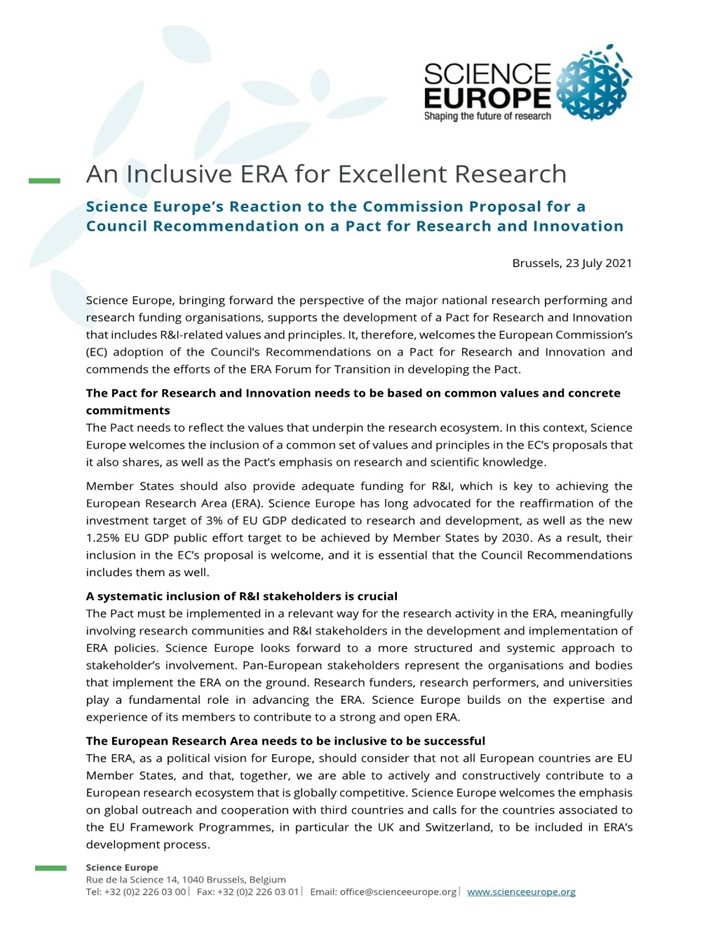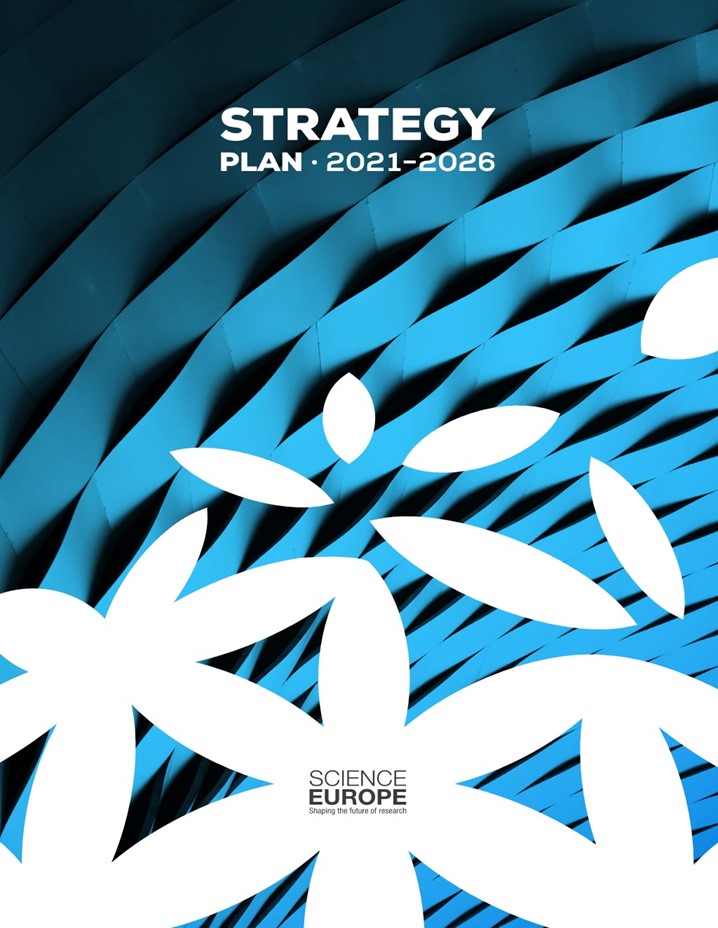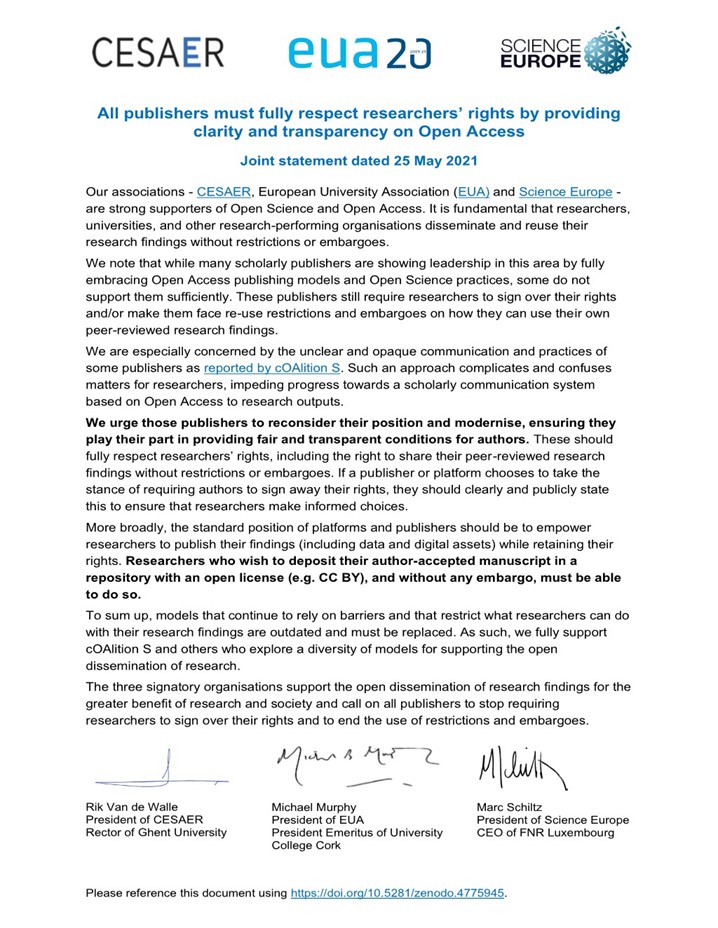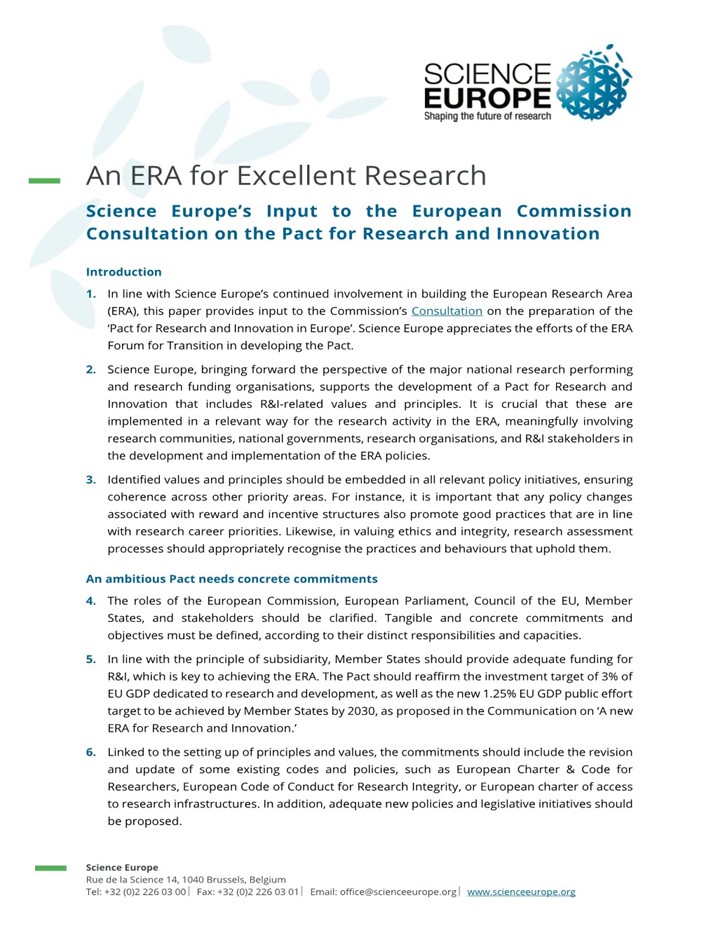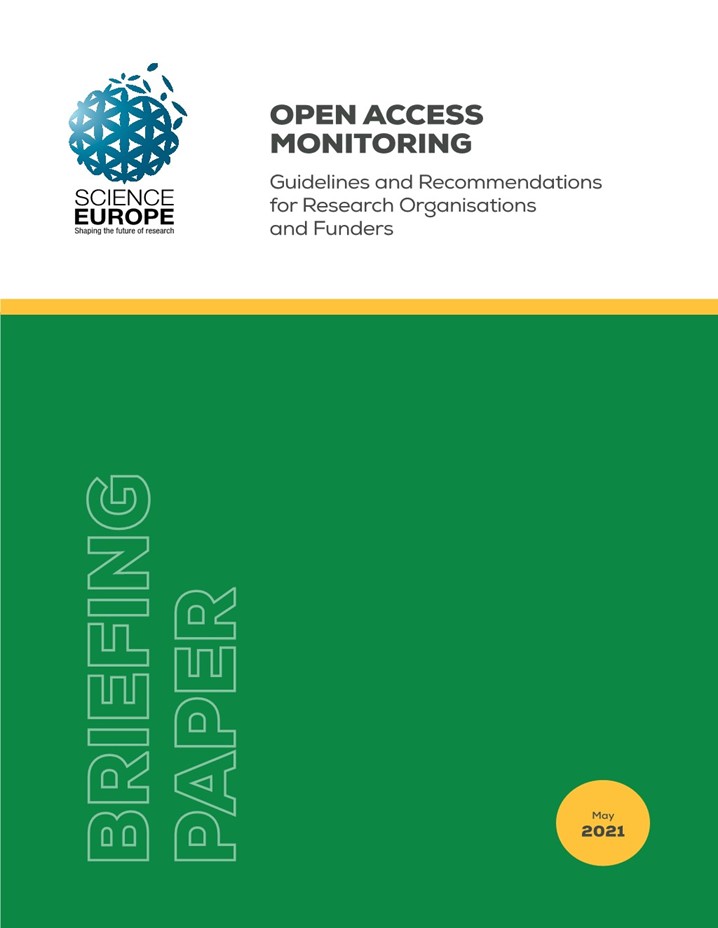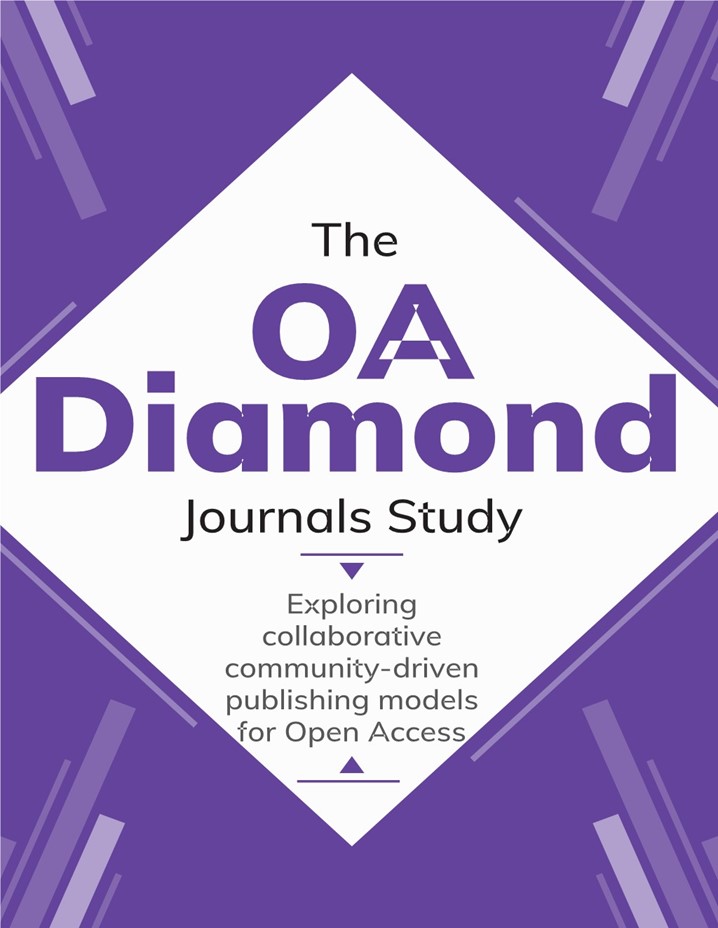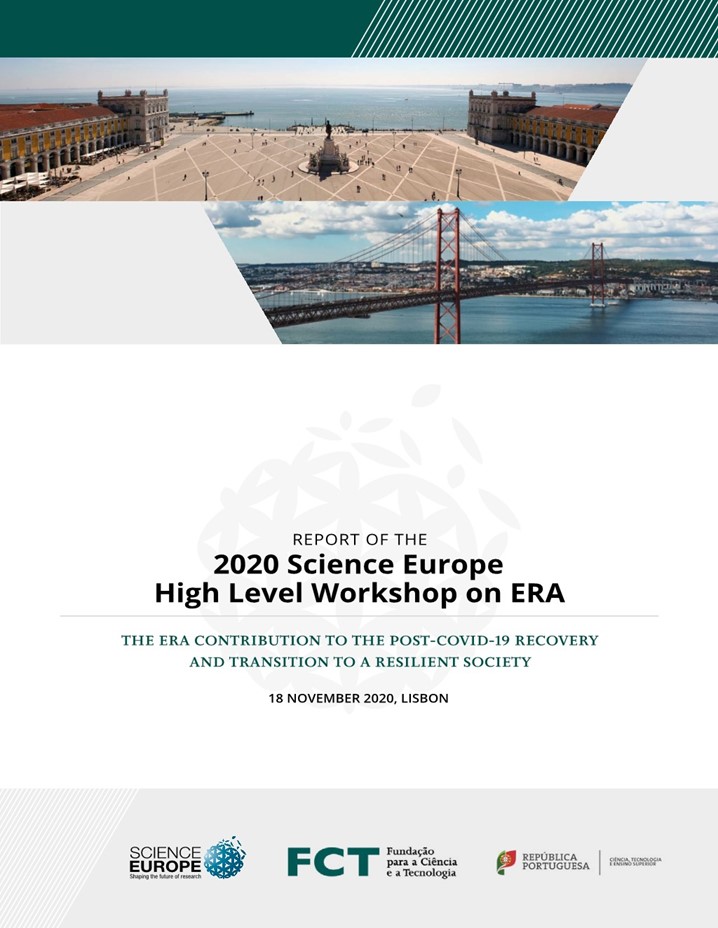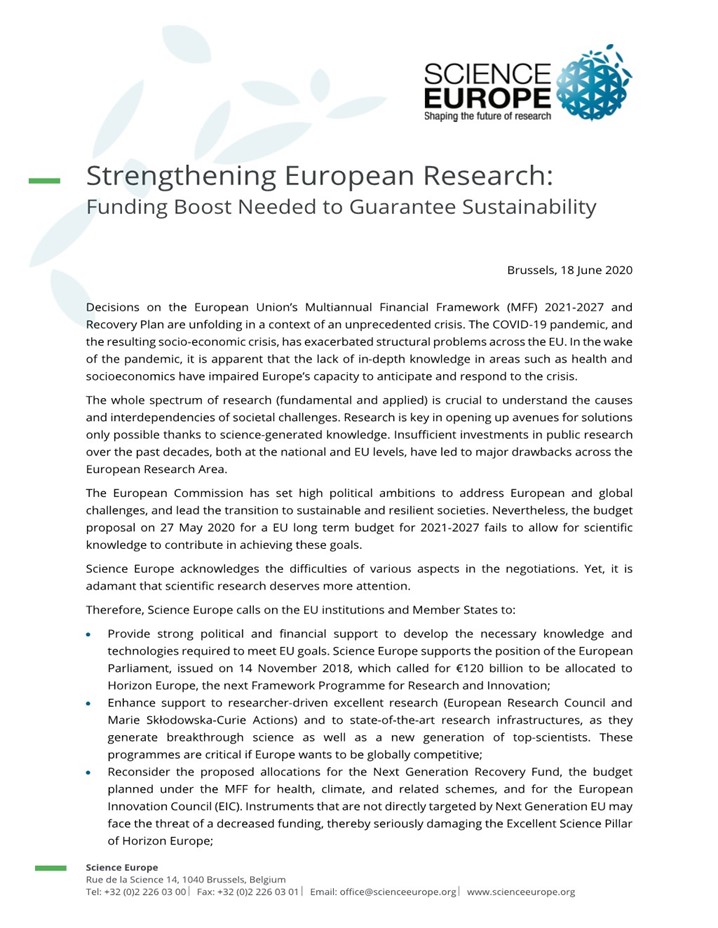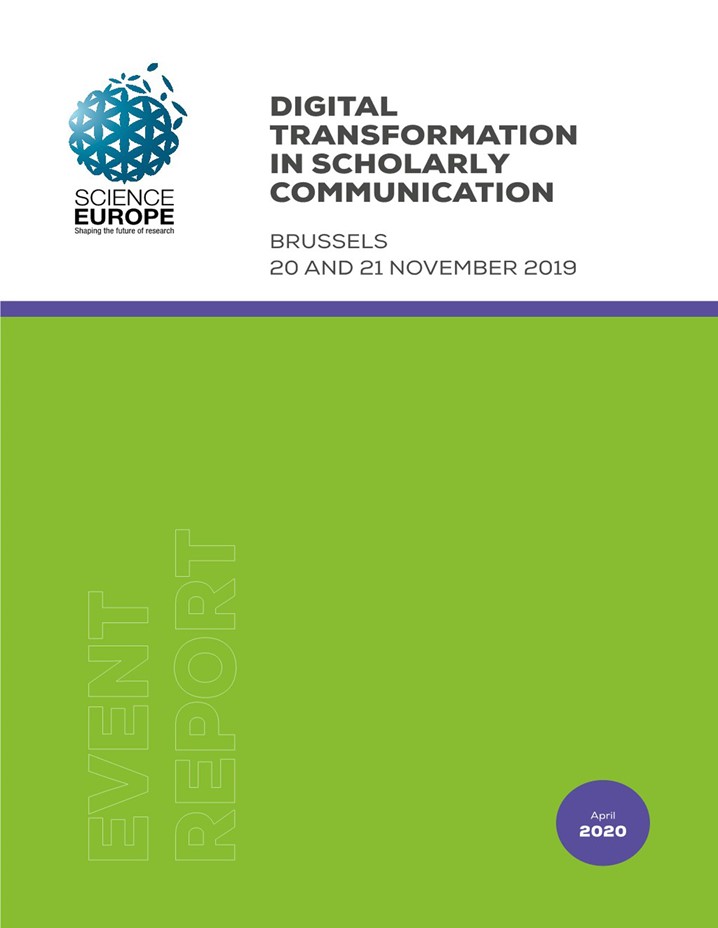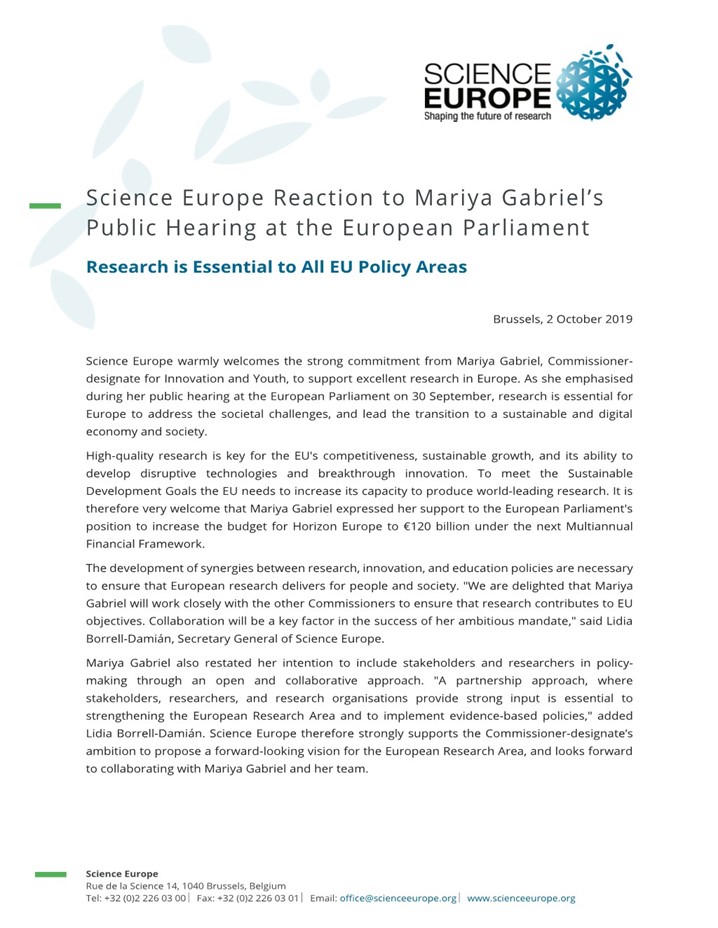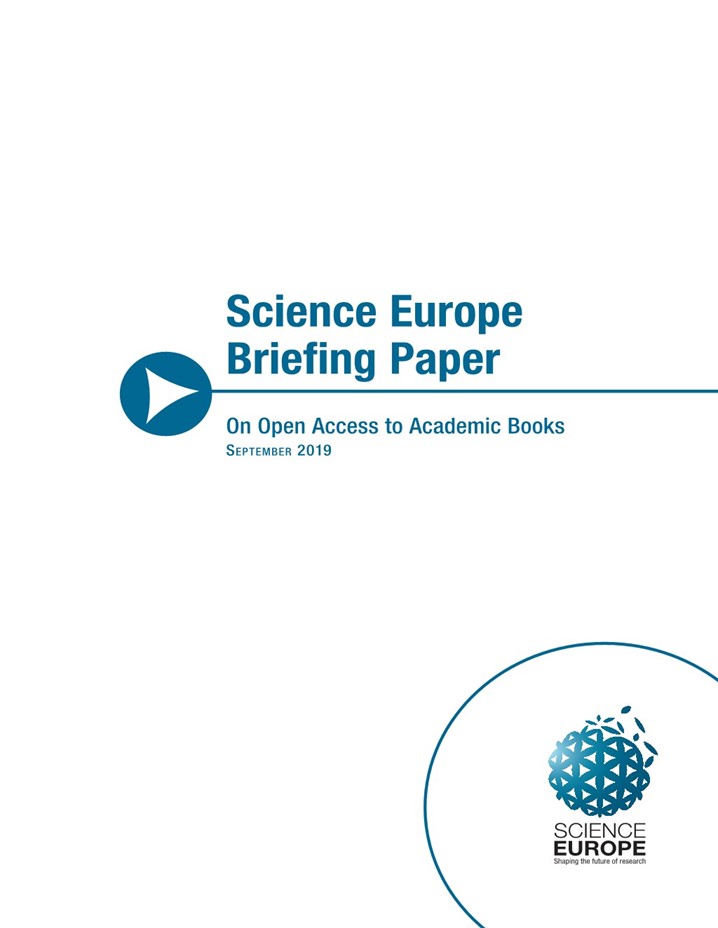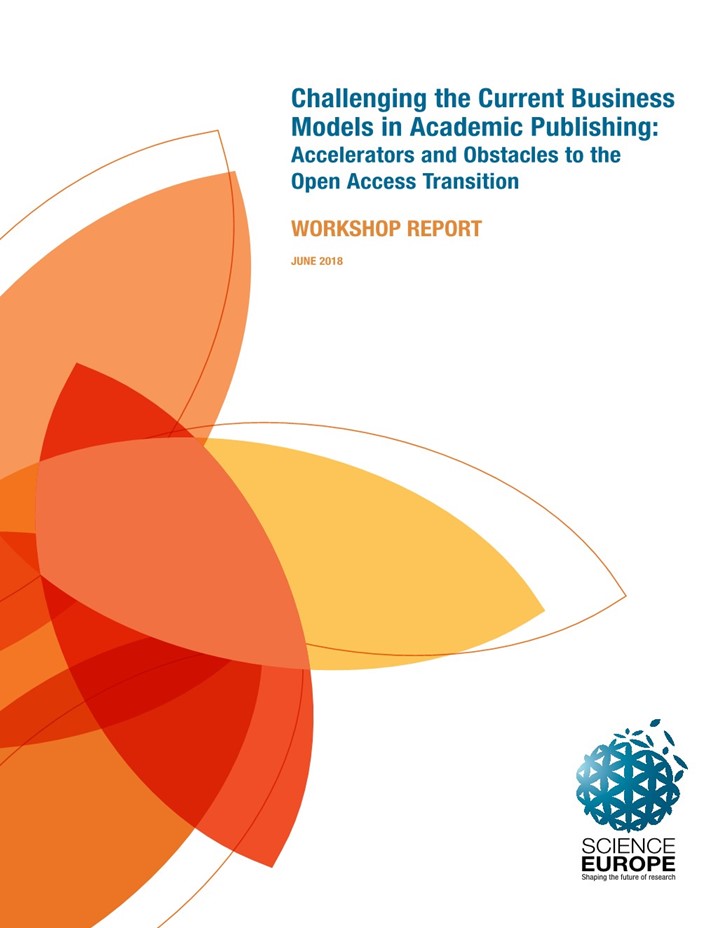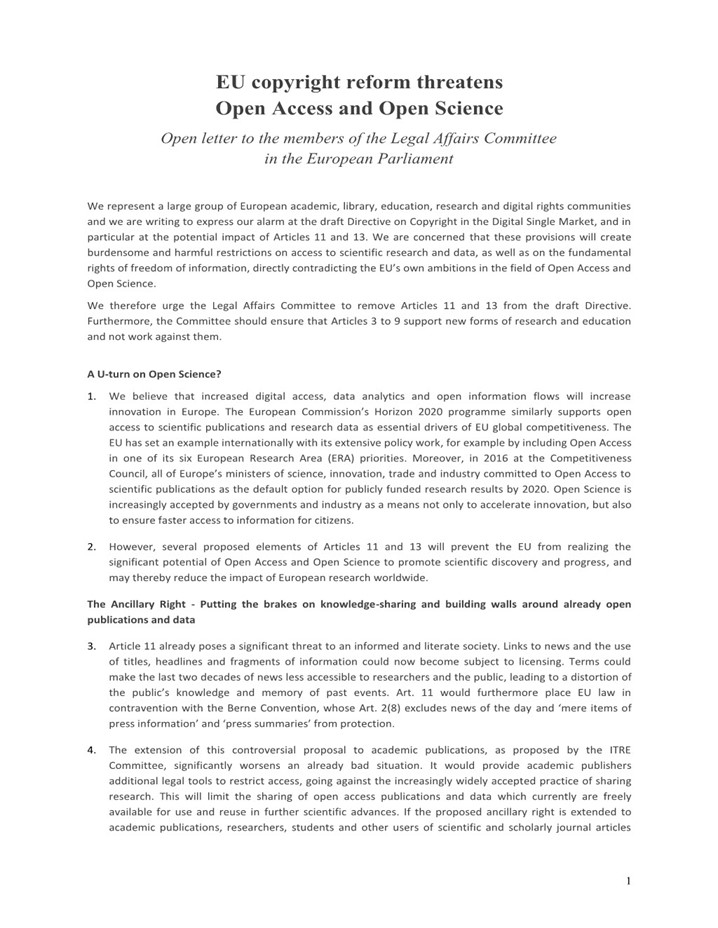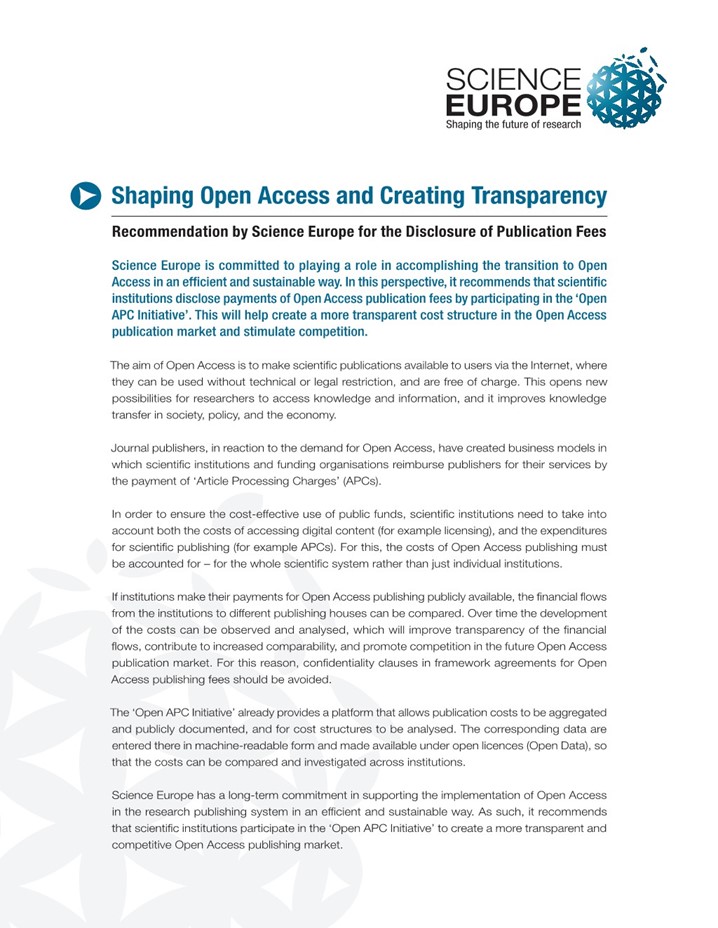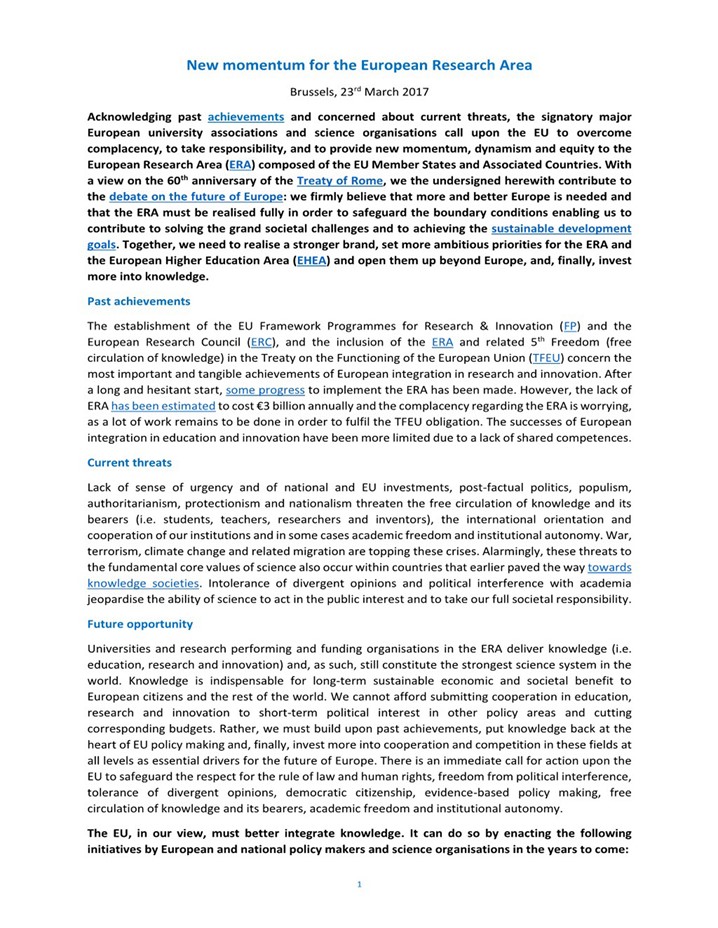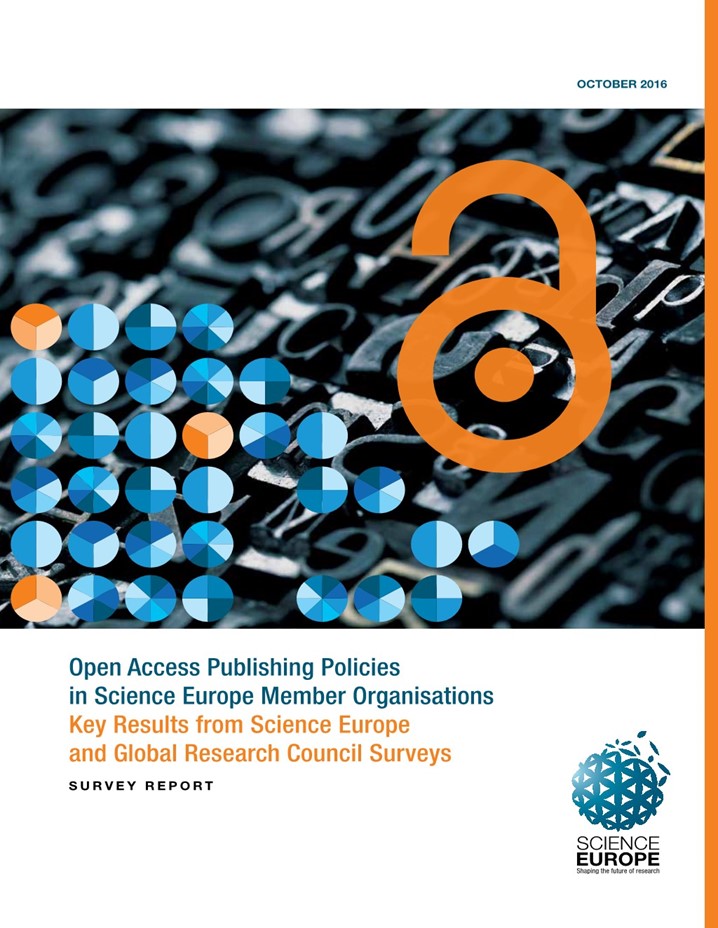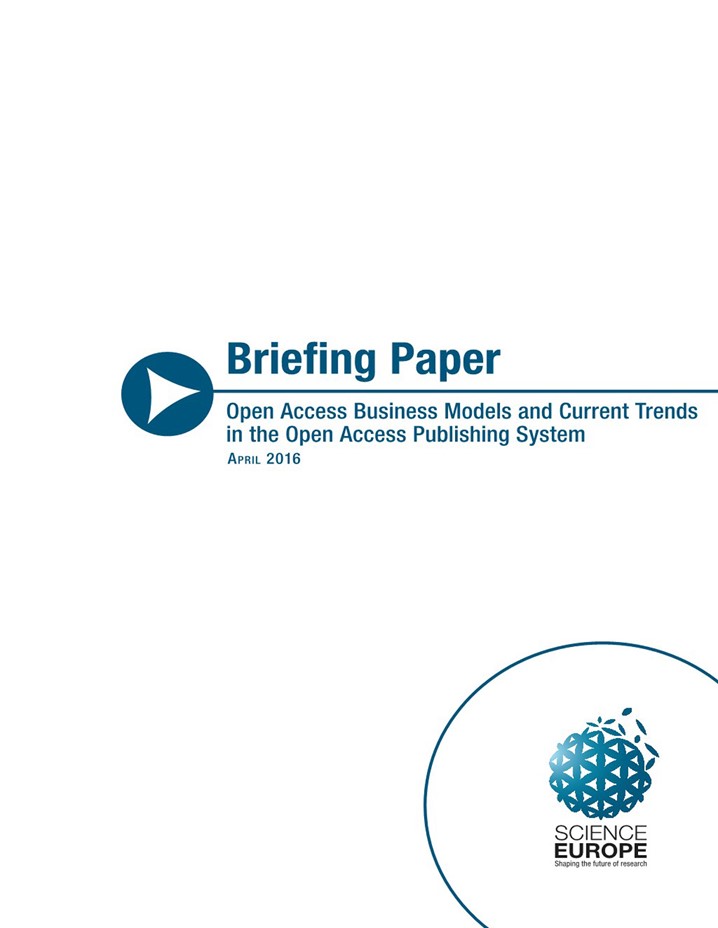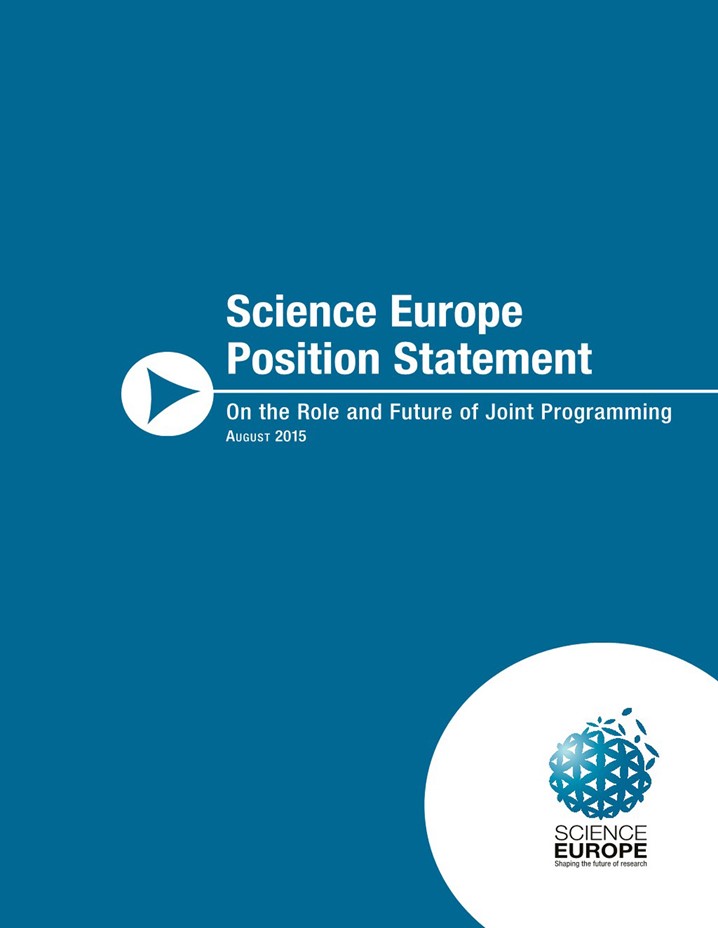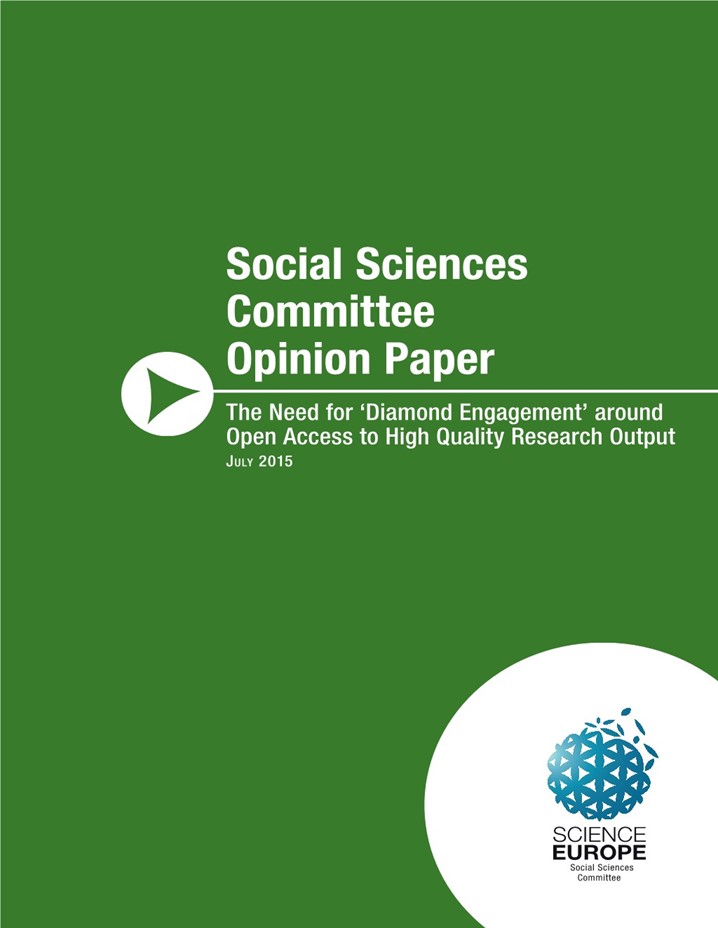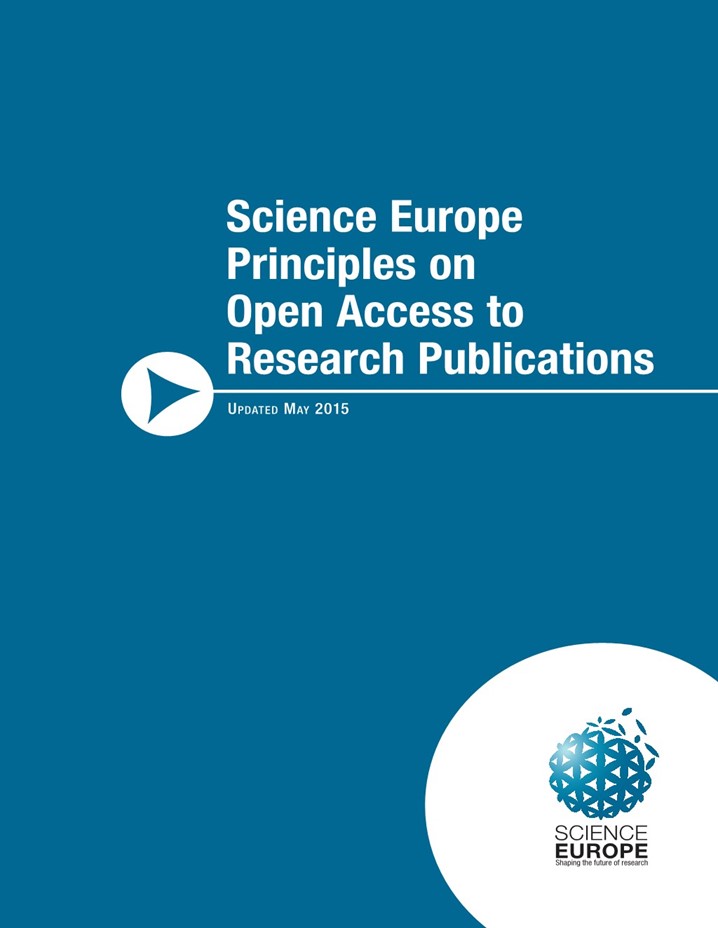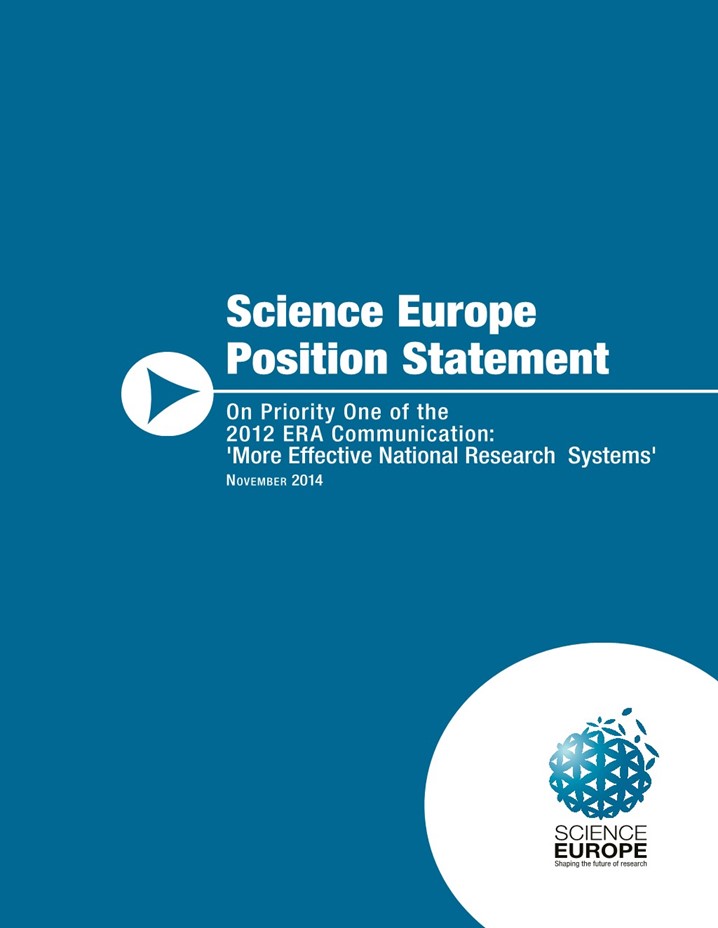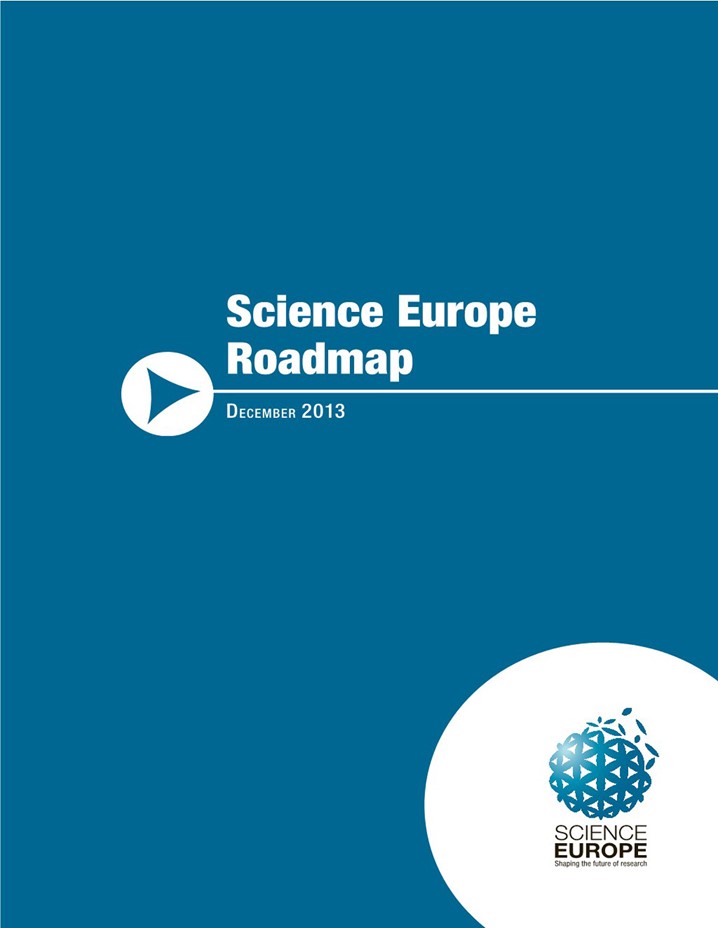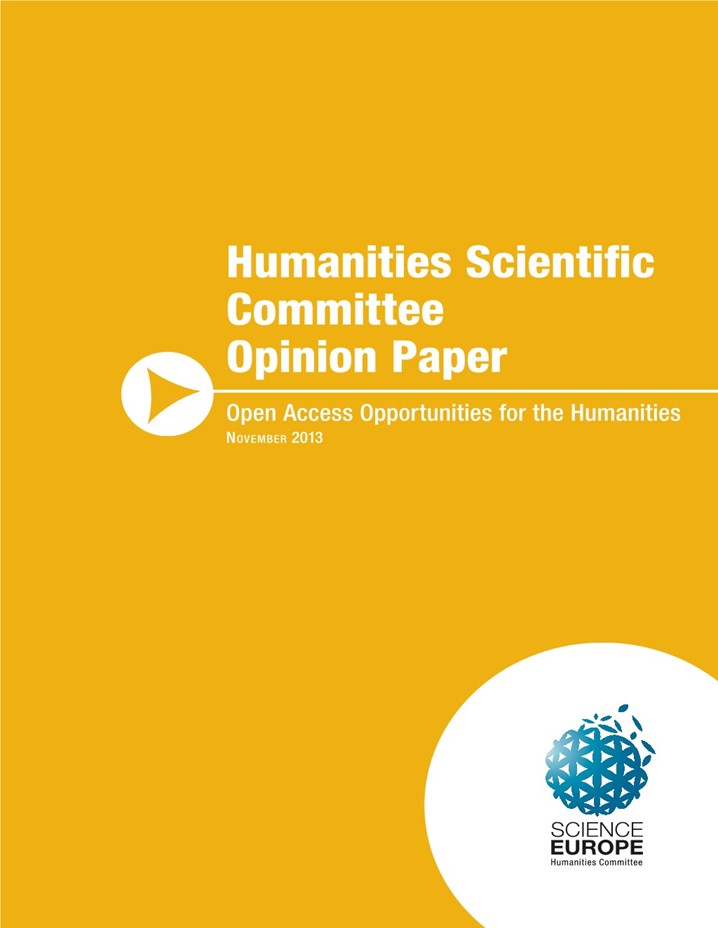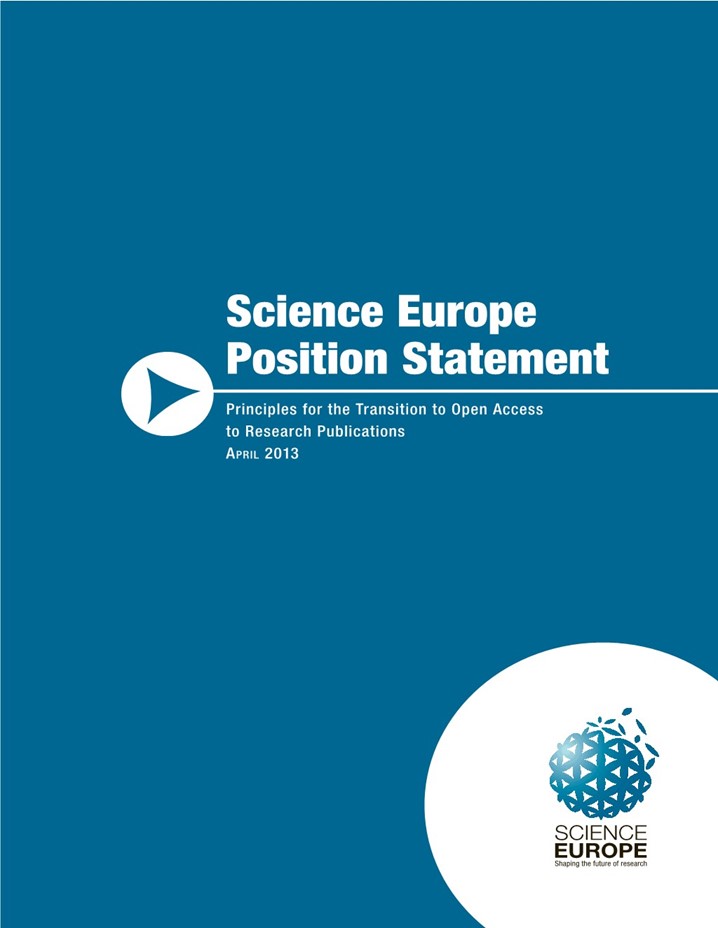Member-only content is available on this page. Please log in to view this content.

Our resources
Discover Science Europe’s comprehensive library of resources, including the most recent publications, briefings, and position statements.
49 resource(s) found
An Inclusive ERA for Excellent Research
Science Europe’s Reaction to the Commission Proposal for a Council Recommendation on a Pact for Research and Innovation.
Science Europe Strategy Plan 2021-2026
The Science Europe Strategy Plan comes at a crucial time for European Research an Innovation (R&I) and includes an updated vision, mission, values, and set of strategic priorities for the association. It supports its Member Organisation in their mission to create world-class scientific knowledge, delivering more benefit for our societies.
Joint Statement on Empowering Researchers in Open Access
Released in partnership with CESAER and the European University Association (EUA) this joint statement outlines how all publishers must fully respect researchers’ rights by providing clarity and transparency on Open Access.
Response to the EC Consultation on the ERA Pact for Research and Innovation
The European Commission approach to the ‘ERA Pact for Research and Innovation in Europe’ should be as inclusive as possible. Its development and implementation need to include research communities, national governments, research organisations, and R&I stakeholders.
Briefing Paper on Open Access Monitoring
This briefing paper aims to support decision makers at research organisations and research funders to develop new monitoring exercises or assess and improve existing processes to measure the Open Access status of publications.
The OA Diamond Journals Study
Science Europe and cOAlition S publish an in-depth report and recommendations arising from a study of community-driven Open Access journals across the world that are free for readers and authors, usually referred to as 'OA diamond journals'.
Report of the 2020 High Level Workshop on ERA: The ERA Contribution to the post-COVID-19 Recovery and Transition to a Resilient Society
The 2020 edition of the Science Europe High Level Workshop on ERA was co-hosted with the Foundation for Science and Technology and the Portuguese Ministry of Science, Technology, and Higher Education. It explored how research and innovation can contribute to crisis recovery and to societal resilience in the context of an evolving research culture.
Strengthening European Research: Funding Boost Needed to Guarantee Sustainability
Science Europe calls on the leaders of the EU to dedicate increased funding to research and innovation at the 19 June European Council meeting on the EU long-term budget and COVID-19 recovery fund.
An increased budget is necessary to meet the ambitious objectives of the European Union for a sustainable, healthy planet, and to ensure the global competitiveness of its research sector.
Science Europe also emphasises the need for sustained European leadership in tackling all COVID-19-incurred challenges.
Workshop Report on Digital Transformation in Scholarly Communication
The 20 and 21 November 2019 Science Europe Workshop on Digital Transformation in Scholarly Communication explored how new possibilities and technologies provided by the digital transformation can impact the future of the scholarly publication process.
Reaction to Mariya Gabriel’s Public Hearing at the European Parliament: Research is Essential to All EU Policy Areas
Science Europe warmly welcomes the strong commitment from Mariya Gabriel, Commissioner-designate for Innovation and Youth, to support excellent research in Europe. Research is essential for Europe to address the societal challenges, and lead the transition to a sustainable and digital economy and society.
Briefing Paper on Open Access to Academic Books
So far, much of the focus of the transition towards Open Access has been on scholarly and scientific articles. However, a significant number of disciplines, notably – but not only – within the Social Sciences, the Arts, and the Humanities produce and heavily use books. This briefing paper identifies the key issues at stake in implementing a policy of Open Access to academic books, and outlines recommendations for different stakeholder groups to facilitate and accelerate such a policy.
Challenging the Current Business Models in Academic Publishing: Accelerators and Obstacles to the Open Access Transition
‘Big Deals’ are one of the dominant but highly-disputed business models in academic publishing. The model needs to be further analysed before it can be used as an instrument to implement and increase Open Access. This workshop was as organised to trigger further expert discussions on the current business models and consider the available alternatives.
EU Copyright Reform Threatens Open Access and Open Science
This open letter issued by the international research community calls on Members of the European Parliament to halt the adoption of harmful provisions found in the current draft of the Directive on Copyright in the Digital Single Market, which could threaten Open Access and Open Science.
Science Europe Recommendation for the Disclosure of Publication Fees
Science Europe is committed to playing a role in accomplishing the transition to Open Access in an efficient and sustainable way and encourages scientific institutions to disclose payments of Open Access publication fees by participating in the ‘Open APC Initiative.’ This paper highlights how this will help create a more transparent cost structure in the Open Access publication market and stimulate competition.
Joint Statement on New Momentum for the European Research Area
CESAER, EUA, LERU, and Science Europe release this joint statement calling on European policy makers to provide new momentum for the European Research Area (ERA). The ERA is a treaty obligation of the European Union and today, more than ever, greater commitment to research is needed to tackle the challenges that Europe faces. By strengthening the ERA, and increasing funding for research, European policy makers would be giving Europe the resources it needs to embark on another 60 years of peace and prosperity.
Open Access Publishing Policies in Science Europe Member Organisations: Key Results from Science Europe and Global Research Council Surveys
Open Access greatly improves the pace, efficiency, and efficacy of research. This report highlights the efforts made by public research organisations in Europe to develop and implement Open Access policies and addresses the challenges faced by different actors in order to facilitate and accelerate the transition towards full Open Access for all scholarly publications by 2020.
Briefing Paper on Open Access Business Models and Current Trends in the Open Access Publishing System
Decisive action is needed to transition towards more effectively and efficiently towards an Open Access publishing system. This paper presents some of the recent trends and developments in the transition to Open Access, as well as various business models currently in use which aim to facilitate this transition. It also highlights expected benefits and underlines remaining challenges.
Position Statement on the Role and Future of Joint Programming
This position statement highlights the added value of Joint Programming Initiatives (JPIs) as perceived by Science Europe Member Organisations, and makes two recommendations on the future of joint programming: one with regards to the evaluation of JPIs, and a second one concerning their governance. The aim is to stimulate other stakeholders – including the European Commission – to join in this discussion.
Opinion Paper on the Need for ‘Diamond Engagement’ around Open Access to High Quality Research Output
This publication by Science Europe’s Scientific Committee for the Social Sciences addresses two audiences: scientists, especially those who have been traditionally more resistant to the OA approach, and policy makers. In it, the Scientific Committee for Social Sciences proposes a ‘Diamond Engagement’ concept with the three key principles: partnership; standardisation and interoperability; and enabling structures.
Principles on Open Access to Research Publications
Open Access, as defined in the Berlin Declaration, means unrestricted, online access to peer-reviewed, scholarly research papers for reading and productive re-use, not impeded by any financial, organisational, legal or technical barriers. Ideally, the only restriction on use is an obligation to attribute the work to the author. Science Europe Member Organisation are committed to a shared set of principles on Open Access to ensure consistency and coherence in their efforts and activities.
Position Statement on Priority One of the 2012 ERA Communication: 'More Effective National Research Systems'
The 2012 Communication ‘A Reinforced European Research Area Partnership for Excellence and Growth’ laid out the current approach for realising a European Research Area (ERA). As this approach is now being reviewed by the European institutions, Science Europe puts forward its analysis of Priority One of the Communication, in order to start a fruitful dialogue with the European institutions on the future of ERA policy. This analysis provides a practical example as to why the current ERA Communication approach needs to be thoroughly reviewed if ERA policy is to have a real impact.
Science Europe Roadmap
The Roadmap, approved by the Science Europe General Assembly in November 2013, is Science Europe’s action plan to contribute to the elements of a successful research system. It acts as a framework for voluntary collective activity, providing a long-term strategy for the association. The ‘Priority Action Areas’ are those in which Science Europe members believe that there is a potential to achieve tangible and substantive progress, and where they can add real value by working together.
Open Access Opportunities for the Humanities
Published on the occasion of the tenth anniversary of the Berlin Declaration, this paper encourages the humanities research community to engage with the new possibilities that Open Access can offer. It also calls on research funding and performing organisations to work together to tackle the specificities and remaining potential obstacles.
Principles for the Transition to Open Access to Research Publications
Science Europe Member Organisations are committed to ensuring that publicly-funded research and innovation in Europe has the maximum impact, leading to new discoveries, and providing solutions that deliver societal benefit. Research publications are one of the main results of the research process and the Research Performing and Research Funding Organisations that comprise Science Europe share the vision of increasing the impact and reducing the costs of research publications by moving to a system of Open Access.

